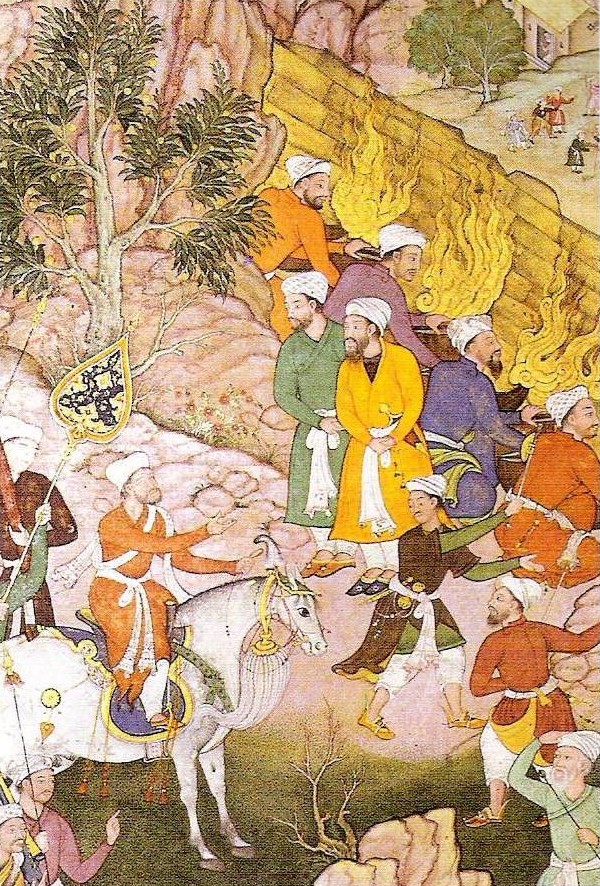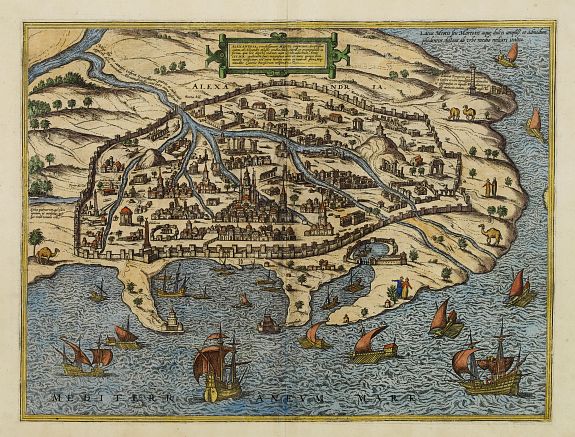Hellenistic Civilization
or Alexandrian Civilization
4th century BC - 1st century BC
Philip asked Aristotle to tutor his son Alexander. After Philip died, Alexander advanced Hellenic literature and art wherever he conquered, and established Greek as the official language. His empire extended from Europe to India to the Middle East, where he founded the port city of Alexandria, in Egypt. He died of fever in 323 BC when he was thirty-three, and his empire fell to political rivalry. Aristotle, in Greece, died shortly after.
One of his generals, Ptolemy I was appointed as leader and soon after became king of Egypt. Under the Ptolemy dynasty Alexandria became the largest city in the Mediterranean basin, and remained a center for culture and learning for the next three hundred years. Both Christian and Jewish scholars came to Alexandria for its two libraries that allegedly had 7000,000 scrolls, and for its university. Caesar temporarily controlled the city in 47 BC but the final defeat for the Macedonians came three years later with the Roman Emperor Augustus. Alexandria officially became part of the Roman Empire in 43 BC.
King Philip II of Macedonia was fifteen when he was taken hostage for two years by the Thebans. While in captivity he studied their tactics. As a student the philosopher Aristotle was his tutor and as an adult Philip was unsurpassed as a military leader and a patron to artists and intellectuals. In 338 BC he invaded Greece.
Because Athens and Sparta were continuously at war with each other and did not have the resources to fight off Philip's soldiers.
Under Macedonian rule the region around the Mediterranean went through a period of prosperity and stability with an increase in trade that added greatly to the wealth of the merchants and upper classes.
Alexander the Great
The Alexandrian libraries were destroyed by Emperor Theodosius I, who brutally enforced Catholic dogma. After people in one Greek town rebelled he ordered the massacre of its citizens and the city plundered.
The slow decline began when sediment started clogging the main waterway leading to the Nile. It was was restored when the Arab Muslims conquered Egypt around 960, and became the capital of Islam.

